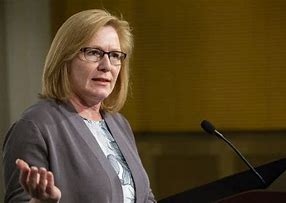The Man for Others
Advent 1, Year B
Isaiah 64:1-9
December 3, 2023 at Trinity Lutheran Church, Moorhead MN
From our First Lesson for today we hear again these
words:
“O that you would tear open the heavens
and come down…!”
O that you would travel from heaven to earth, Great God, and pay us a healing, helping visit! “Come down here—why don’t you?—and clean
things up!”
Y’know—I bet we could get into
that—couldn’t we?
“Please come down to us, Lord,” I actually sometimes pray, under my breath. “Please come down from heaven and take care
of all the things that are awry here on earth.”
“O that you would tear open the heavens
and come down…!”
…come down to—not just anywhere—but back to that crossroads
of this world where God first uttered ancient promises to his chosen
people. Split the heavens above and
descend upon today’s Middle East—where terror, revenge, hatred and discontent
seethe in the streets….especially nowadays in Israel and Gaza.
If you just came down from heaven, dear God, you could
really straighten out that and other troubled parts of your world!
Tear open the heavens and come down, O God, to the
tens of thousands of victims of natural disasters like earthquakes and floods
plus human-caused disasters like climate change and wars.
Tear open the heavens and descend to us, O God—and
please, please, please, with seemingly no accurate chart or sure compass to
guide our way. Tear open the heavens,
O God, and visit us right here, right now, and set all things aright!
Tear open the heavens and come down, O God, to our own
little corner of this world. Come down
to a local hospital ICU where a loved one clings to life. Come among us, O God, and patch up broken
relationships, heal fractured marriages, and restore hope for our
children. Create jobs for our unemployed
or underemployed friends…make a home for our displaced, desperate neighbors.
O that you would tear open the heavens and come down
here and make yourself plain to us.
Cause us to see that you, O God, are undeniable and
unavoidable. “Get in our faces, Lord
God—and make it impossible for us to ignore you or sidestep your will.”
“O that you would tear open the heavens
and come down,” pleads the ancient prophet Isaiah in our
first lesson for today….reminding us that this season of Advent always begins with
songs of plaintive longing---songs sung in a minor key, songs that have been echoing
for 25 centuries…songs like “O come, O come, Emmanuel.”
Before we go any farther, we must remember that old
Isaiah the prophet addressed a defeated, exiled people…the wandering Jews who
lived five centuries before the birth of Christ---a people in exile who were
not free to come or go as they pleased….a people who could not worship in their
beloved temple in Jerusalem
Truth be told, they couldn’t see the light at the end
of the tunnel. And they struggled to
trust that God was still alive and well and active in their lives.
“O that you would tear open the heavens
and come down” they cried, night and day.
As we ponder this text we can’t help but hear their
aching longing…their gnawing hunger for the tangible, living, life-restoring
presence of God.
· “Descend
to us, God, and do the stuff you used to do,”
Isaiah cries out
· “Come
down from heaven, O God, and make a mountain or two quake again—the way you did
when you thundered on Mt. Sinai.”
· Light
a fire again, O God, the way you did when the prophet Elijah battled the pagan prophets
of Baal on Mt. Carmel.
· Make
a name for yourself again, O God, the way you did when you brought your people
through the waters of the Red Sea and defeated the army of Egypt’s pharaoh.”
“O that you would tear open the heavens and come
down…! So that we would never again
have to wonder if you exist, if you care, if you are here beside us—attuned to all
the ups and downs of our lives.”
This morning, my friends, we hear once
again these ancient words of Isaiah….still grabbing us,
still hooking us, still resonating with our longings…still rhyming with our own
hunger for the concrete, tangible, presence of God in all of our lives.
Advent begins this year the way Advent always begins--with
a song of longing—an agonizing tune that cries out: “O that you would tear open the heavens
and come down!”
We hear these ancient words of Isaiah….appropriately
enough, on this first Sunday in Advent…when we are preparing ourselves once
again to ponder and celebrate just how, in fact God has already
chosen to rend the heavens and come down to live among us.
The prophet’s lament, you see, has borne amazing
fruit…all because God has done and God continues to do exactly what Isaiah
longingly called for.
God has done so…and God keeps doing exactly what
Isaiah called for, but in a most eye-opening, unexpected way.
…for you see that, when God rends the heavens,
when God tears open the sky…it’s not to create a ginormous galaxy-wide
gash so that legions of angels can march through it in order to mop up all
evidence of evil on earth.
Rather, when God
rends open the heavens…God does so in the seemingly smallest
of ways. God cracks open just a
tiny little fissure in the sky, small enough for a newborn infant to squeeze
through, so that this very same infant could show up in a feed-bunk inside a frigid
Palestinian stable…
….and so that this child
might eventually grow into a man, the Man for Others,
(Bonhoeffer) who stretched out his arms
on a Cross—for you and for me and for everyone else!
In the name of
Jesus. Amen.








